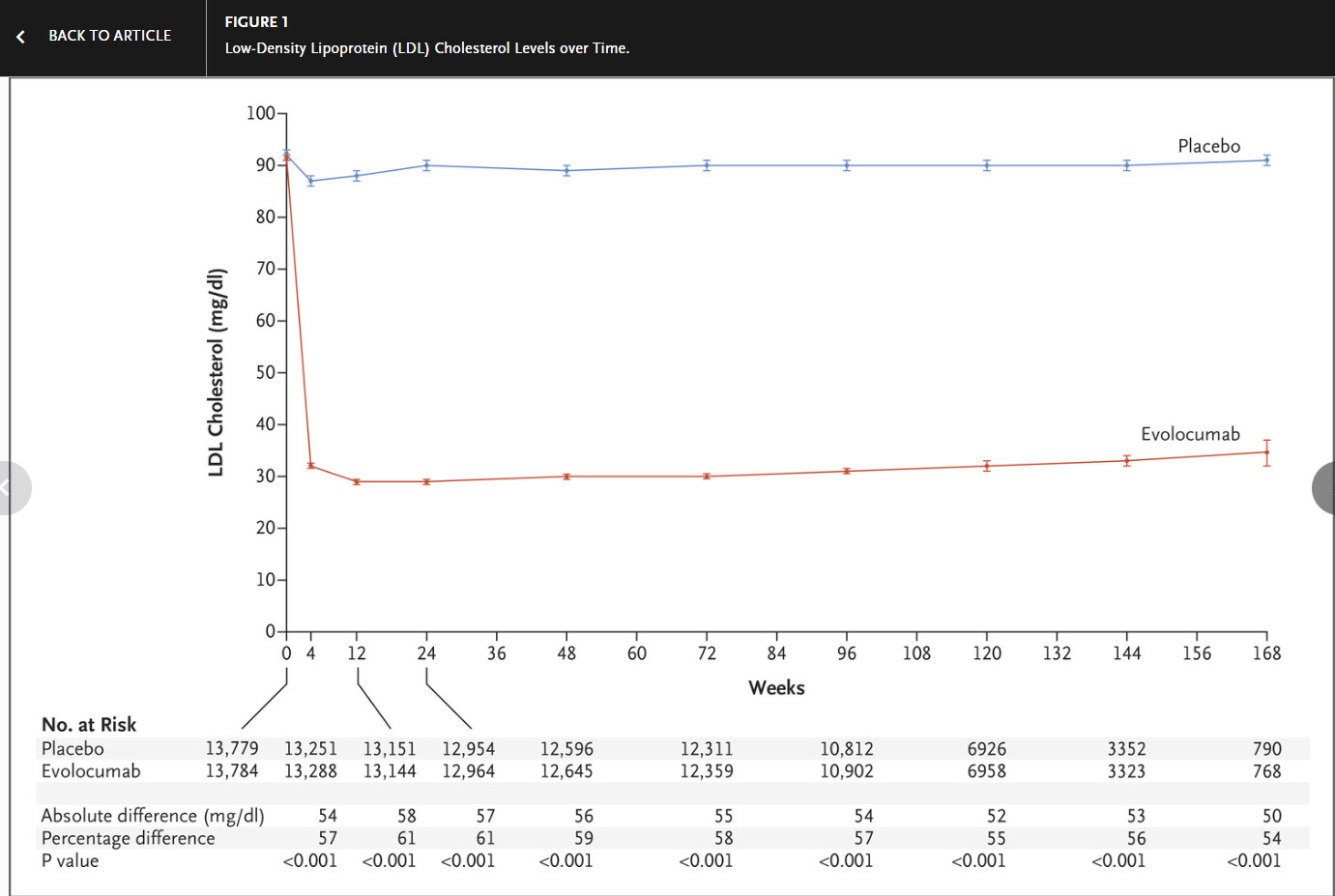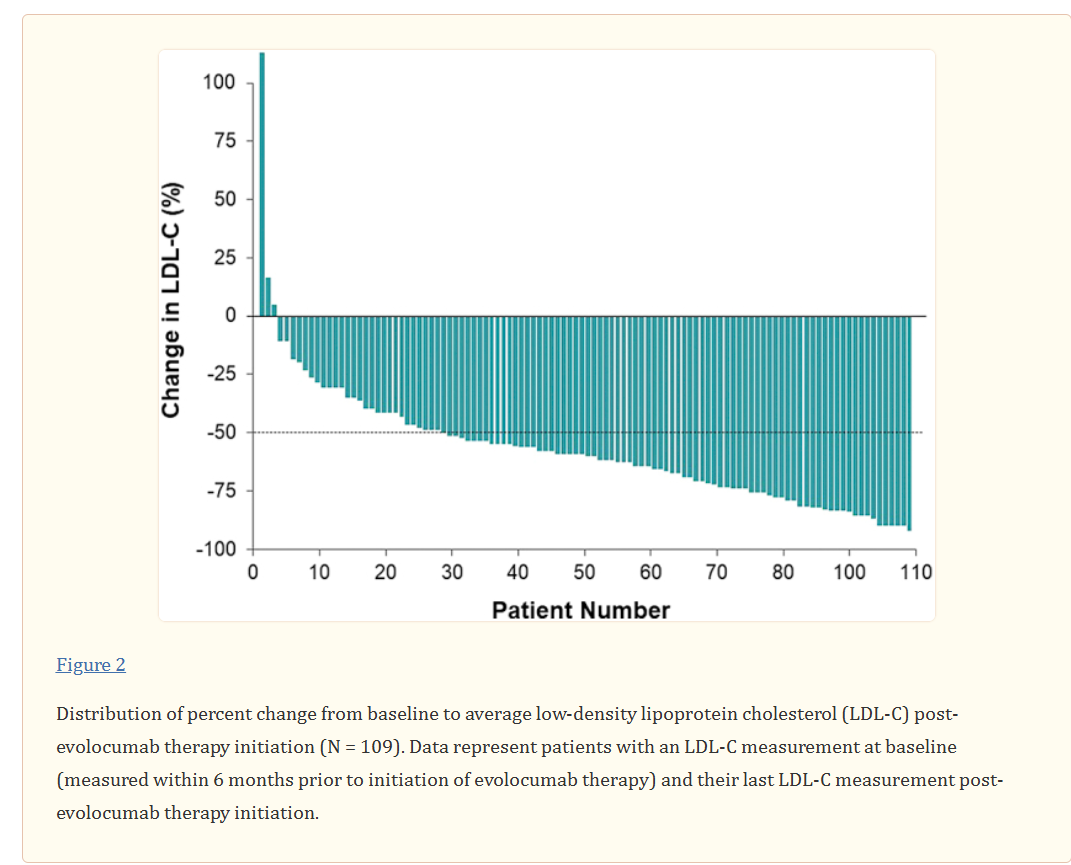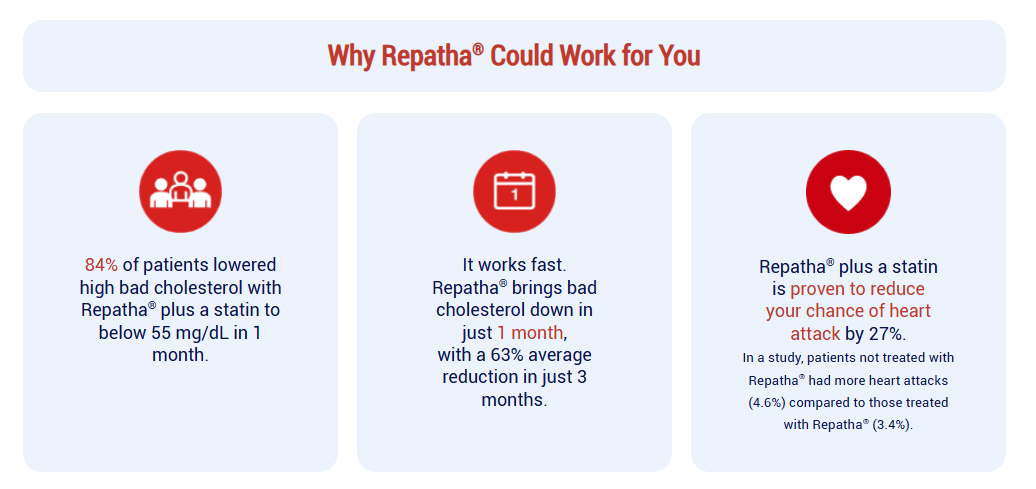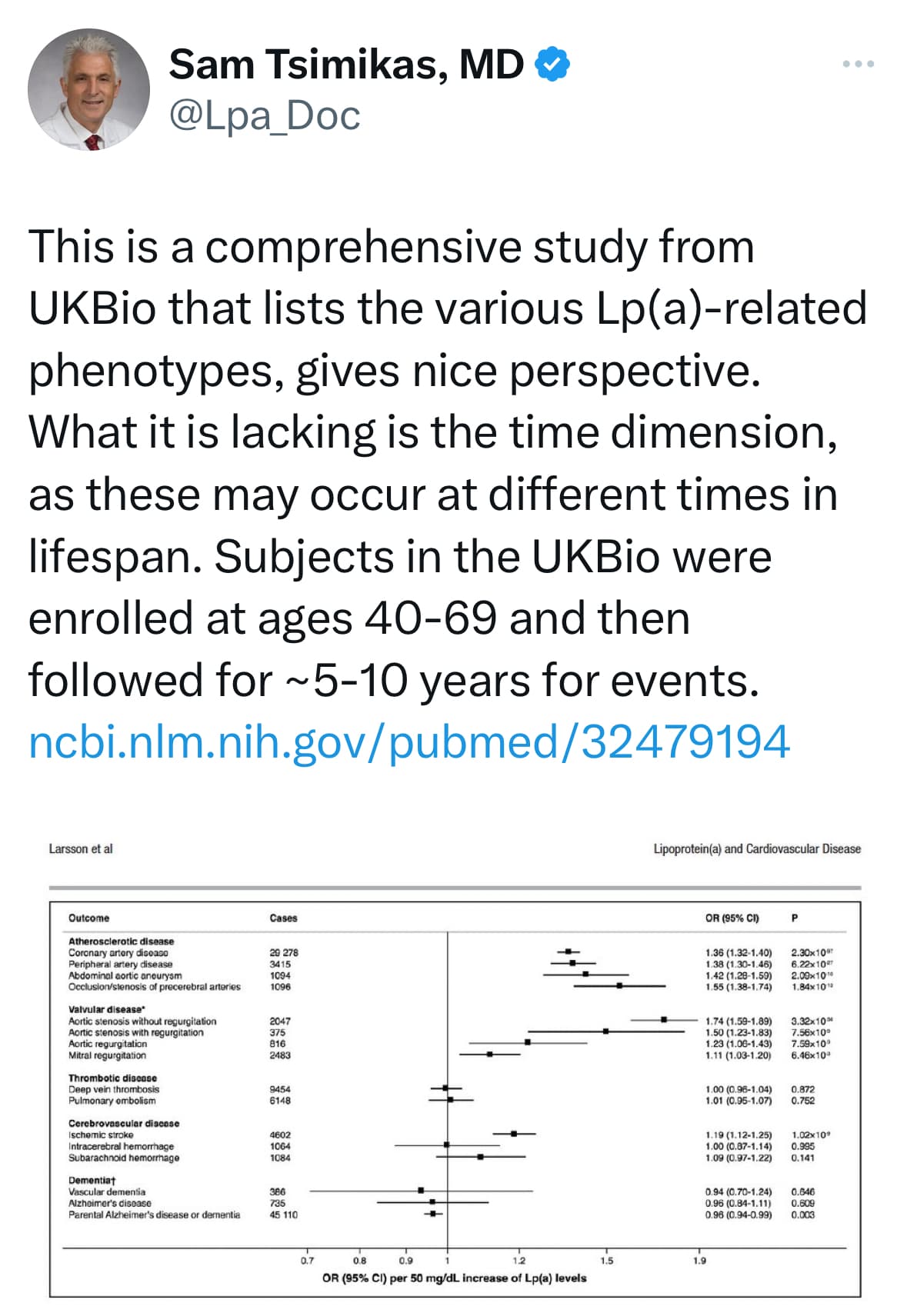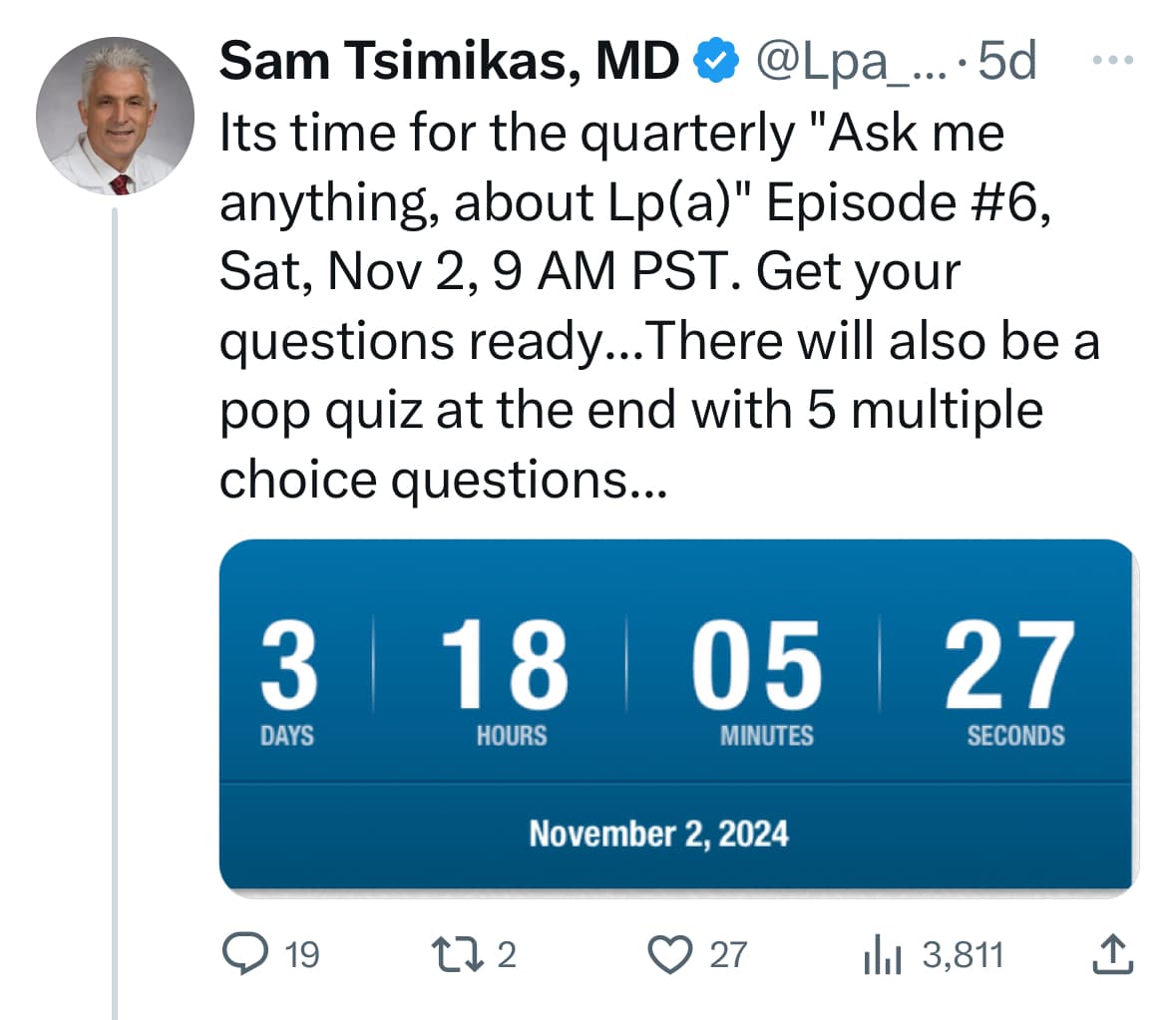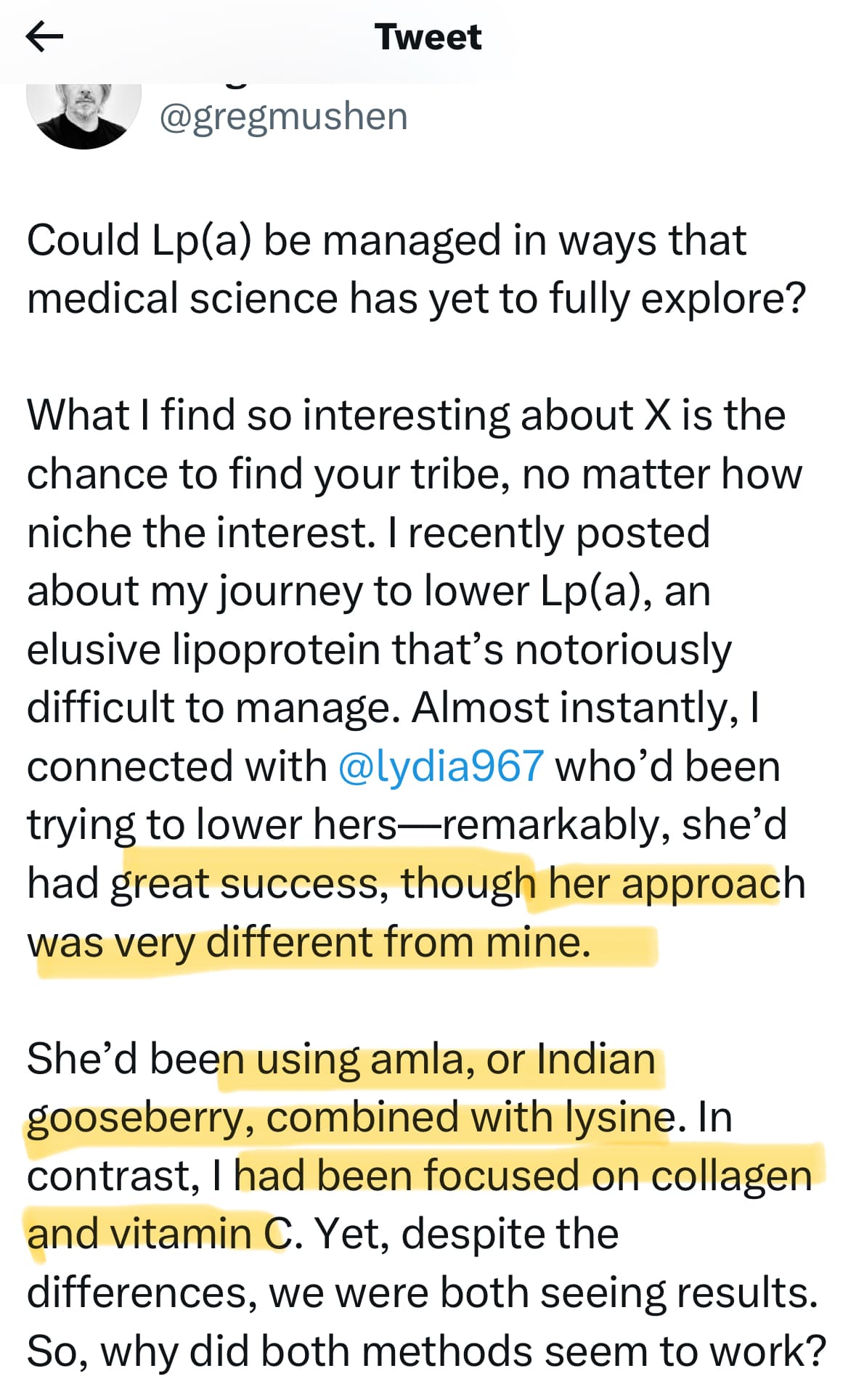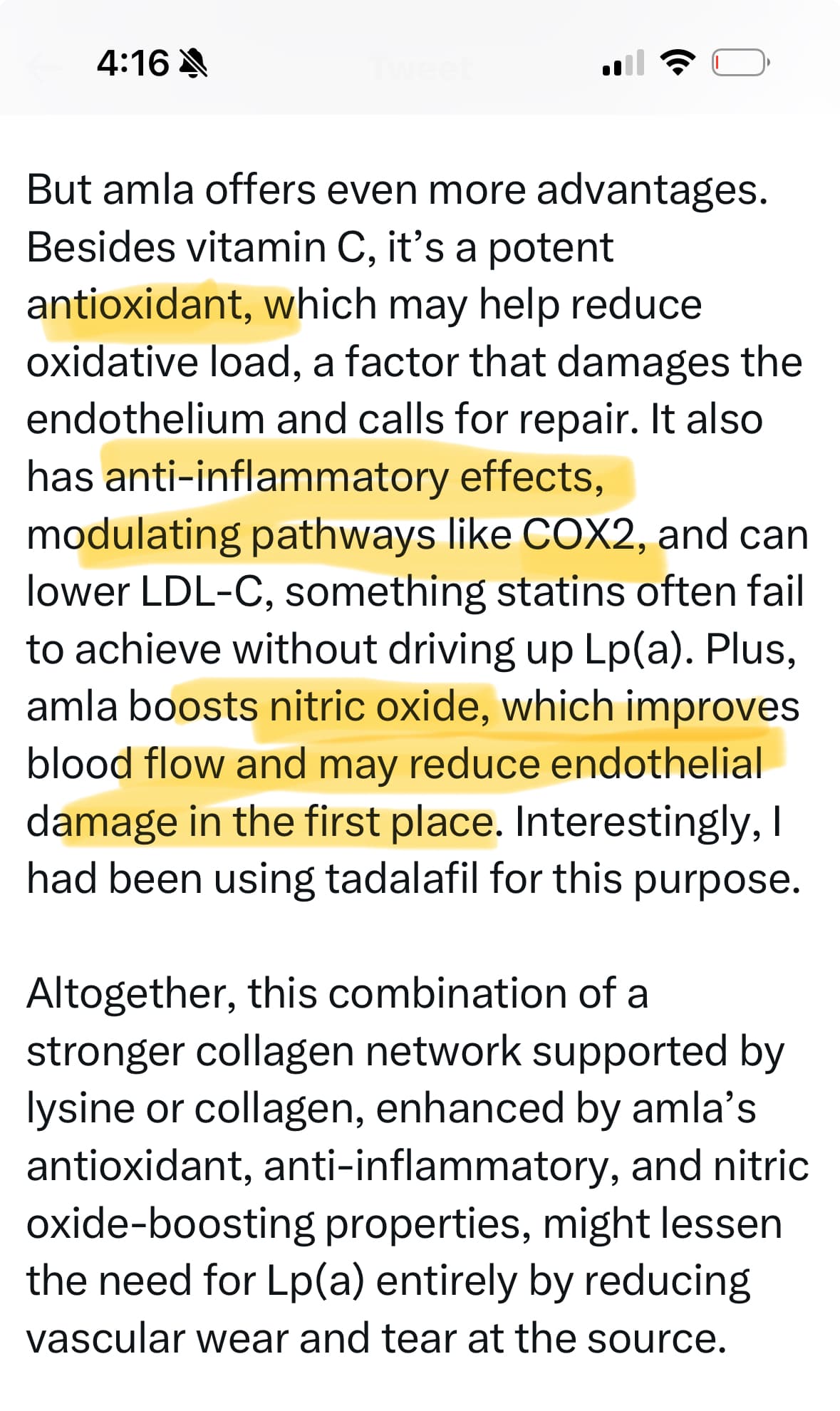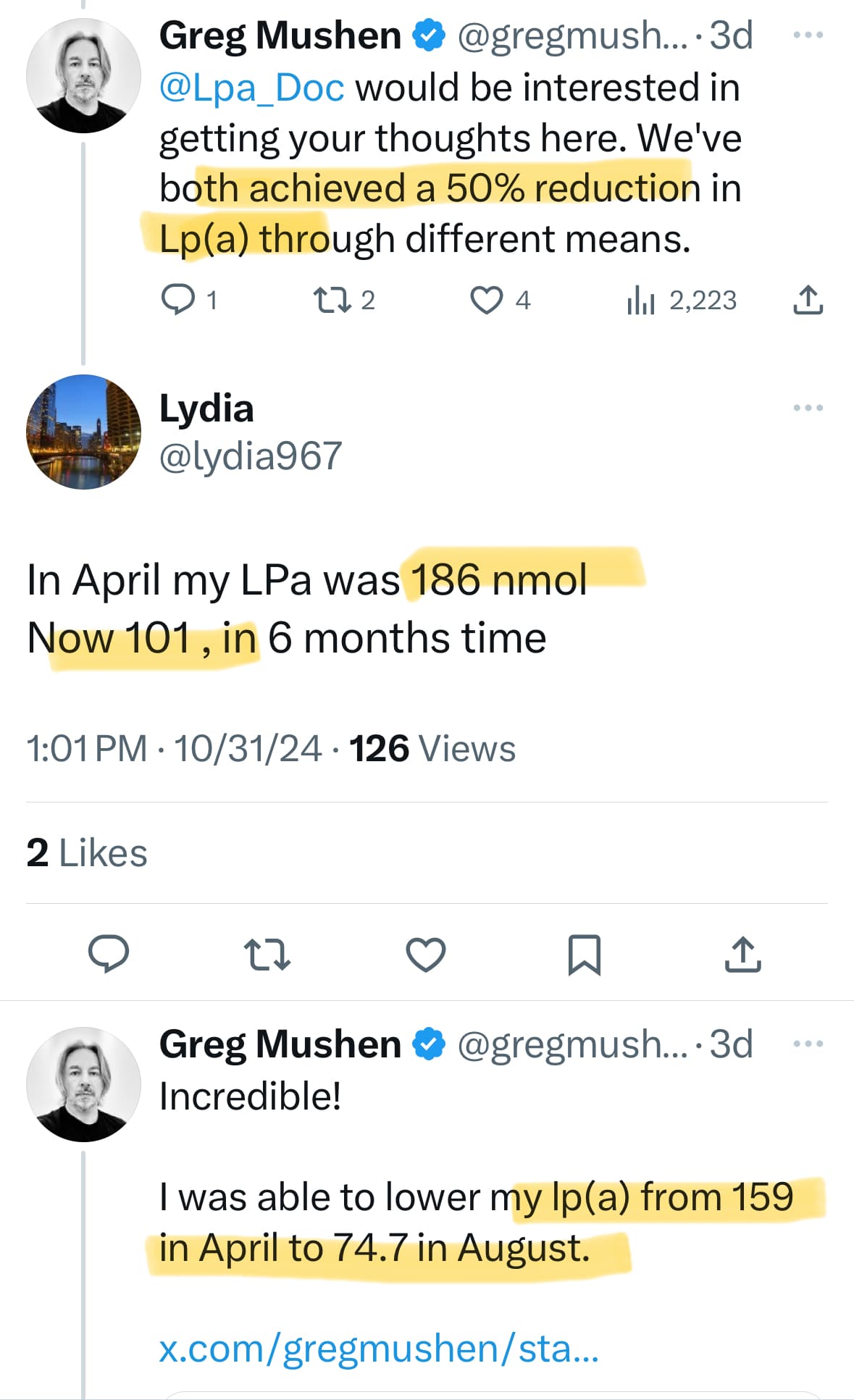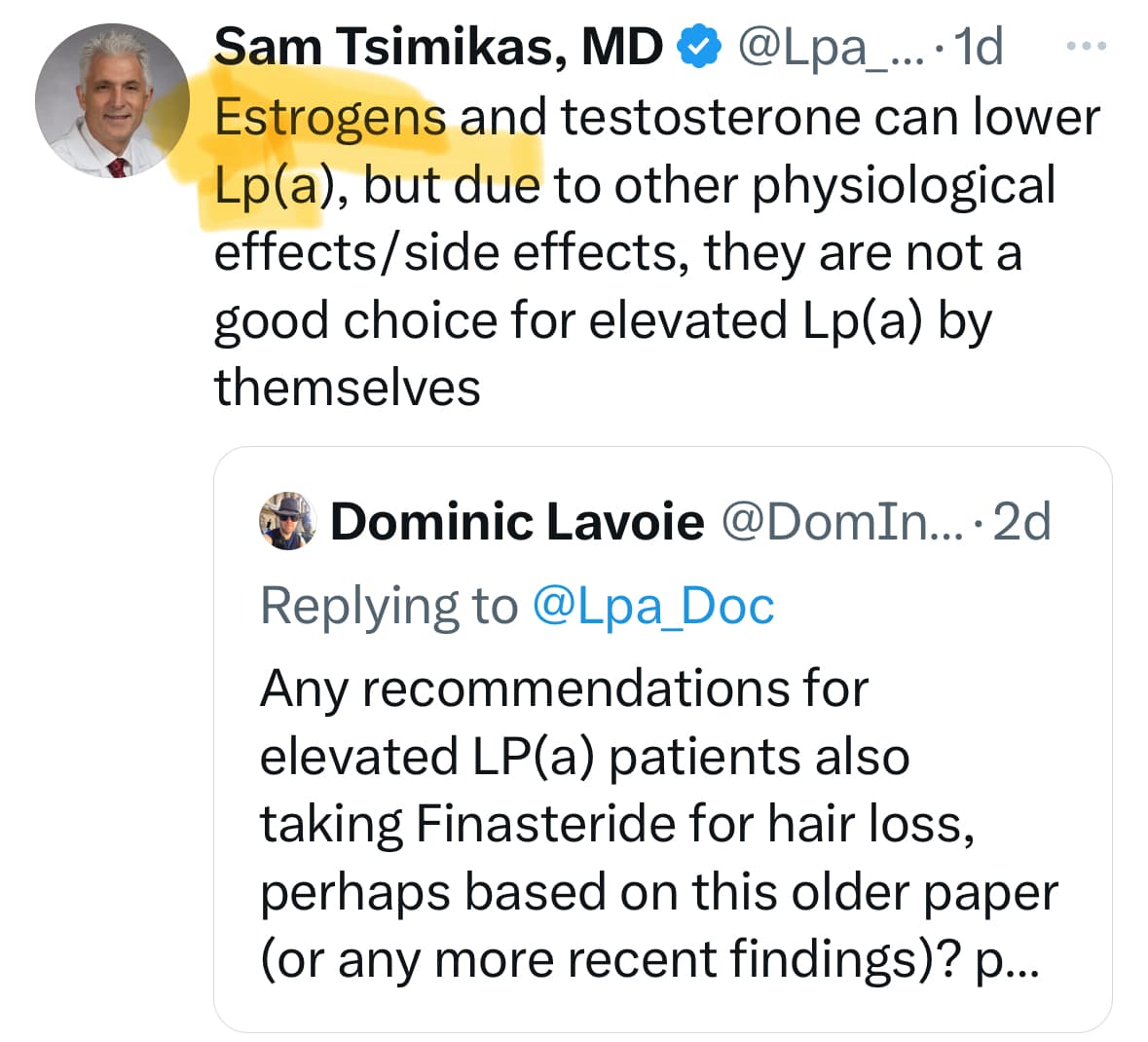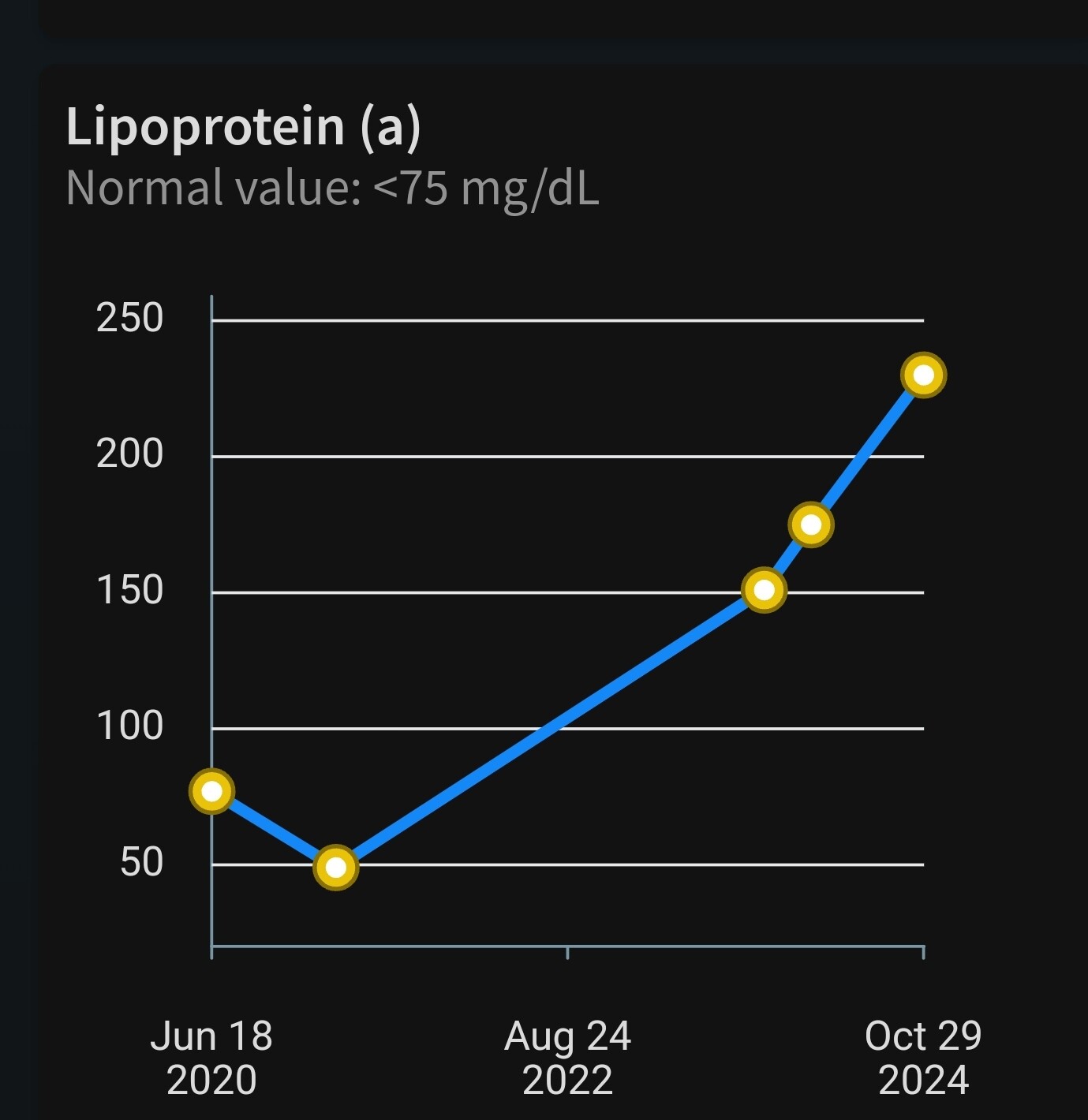With results like yours, I question the effectiveness of Repatha. I guess everyone’s biology is different and it may not have an effect on you.
Just a thought. I hear this a lot, but will this show up in clinical trials? If everyone is so different, you would think that it would be clearly revealed in the studies. Or is it rather the case that there is a very small group of different individuals vs. everyone is different?
Is it possible to inject Repatha incorrectly and the effect will then be low?
If the half-life is as your AI says, then you probably will not have reached steady state compounded levels after just one months.
Happy to explore this more together if you want, if so please answer my question:
The first injection was on 8/15/2024. The second was on 8/31/2024 The third was on 9/15/2024. The aformentioned blood test was on 9/16/2024.
The following is from the Repatha phase three trial. Results at four weeks virtually 100% of all following observations
From a Canadian paper:
According to the following, the five people with the poorest results (over what timeframe, idk) didn’t complete the protocol.
LP(a) results are in:
And FTR
Expiration date on package: 31DEC2026. Purchased through RiteAid. Refriderated upon receipt.
My ldl was at 50 with just a statin. (Discontinued due to pain.)
***update
I used the ‘stretch’ (vs. ‘pinch’) method described below to create the injection site. I have very little body fact, so any attempt to ‘pinch’ doesn’t meet the ‘2 inch wide’ criteria.
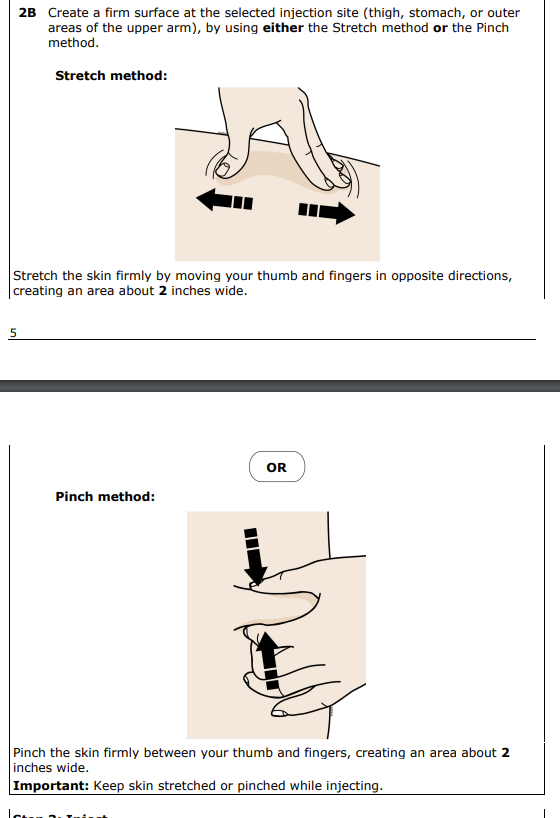
My best guess is that the drug is going into muscle rather fat, which according to AI is a problem.
I have a similar problem installing CGM sensors, very difficult to avoid having the probe (painfully) going into muscle.
Will try a different technique next time.
^^^Update 2
Called the Amgen support line, and the nurse was skeptical that my above explanation is valid.
Yes, studies and marketing report the median decrease, it’s like a bell curve, so most will have an effect but some not so much.
Interesting how quick most of the effects is there.
Perhaps based on what ChatGPT said about point of maximum effect which triangulates well with what my cardiologist said, try to test 6-7 days after the next shot and see what levels are then.
I have also very little body fat and almost none in my legs where I have been taking the shots - for me the effect on especially Apo B and LDL-C was big.
What did you find about muscle vs fat making a difference for the injection… perhaps I should try my stomach where I at least have some fat?
Interesting that a lowering effect one type of Alzheimer’s is significant and others are trending…
(The negative ones I think we know about all to well)
Lipoprotein(a) in Alzheimer, Atherosclerotic, Cerebrovascular, Thrombotic, and Valvular Disease: Mendelian Randomization Investigation
What doses of vitamin C and collagen are they taking? I currently take both (1 g) and (11 g) respectively. Do they need to be taken together?
Thanks for this novel approach!
You can see the whole thread here and could also ask them:
Here is a different person also saying that they have seen results from it, you could also ask him
Anyone seen other things about how estrogens (key longevity pathway anywhere) can impact Lp(a)
In the response to
I had high hopes for Amla in the past, but it never seemed to help (even the expensive proprietary extract). On the other hand, my Lp(a) continues to go UP over time despite other lipids being well controlled and recently losing 25 pounds of fat from my midsection with the help of GLP meds. It is now higher than it has EVER been. I already take collagen, but maybe I should throw in some vit C and try a different kind of Amla (?)
Wait a min, that’s a screenshot not a link. Does finasteride increase Lp(a)??? Well shit, mystery solved.
Does anyone have access to the full paper? I’d like to know what the magnitude of change was.
Haven’t read the paper, here it is
